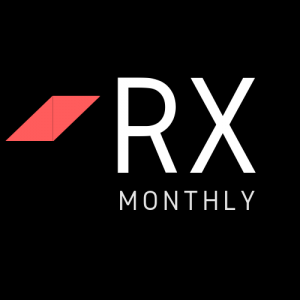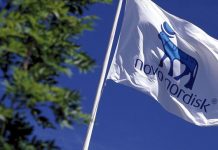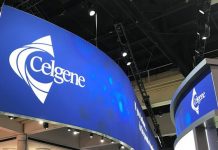Array’s combination of Braftovi (encorafenib) and Mektovi (binimetinib) already appears well received in the small clinical setting of advanced melanoma with BRAF V600E or V600K mutations. Sales and licensing revenue for the first three months of 2019 came in at $64 million, beating consensus expectations by $10 million.
In oncology, expanding indications is essential for sales growth, and Array has been trying to do just that by advancing its marketed products into colorectal cancer and small-cell lung cancer, for example.
The data released Tuesday came from an interim analysis of the BEACON-CRC trial, which tested both a three-drug combination of Braftovi/Mektovi/Erbitux, and a Braftovi/Erbitux combination, against an Erbitux plus chemotherapy control.
Both the triple and double combinations beat Erbitux (cetuximab) plus chemo in the population of BRAF-V600E patients who have advanced after at least one line of treatment.The triple reduced the risk of death by 48% when compared with Erbitux and chemo, and induced remission in 26% of patients, compared with 2% in the Erbitux-chemo arm.
The Braftovi/Erbitux combination, by comparison, reduced the risk of death by 40% versus Erbitux and chemo, and induced remission in 20% of patients. When the Braftovi-based triplet and doublet combinations were compared, the difference was not statistically significant.
This raised the question of whether physicians should use the Braftovi/Erbitux combination over the triple. But Scott Kopetz, one of the trial’s investigators, dismissed that possibility on a company-sponsored conference call: “My practice pattern going forward will be to use the triplet combination.”
Early data from this trial, derived from an safety lead-in, showed a remission rate of 48% for the triple, and some investors had been hoping for better than a 26% rate based on those results. Array CEO Ron Squarer said the early data should have been seen only as a signal because it was taken from just 30 patients.
He also said the remission rate could be different when the final review from this trial is complete, as remission data were calculated in this interim analysis from 331 patients.
“The clinical benefit will improve over time when we are able to look at the entire dataset,” Squarer said.
In a May 21 note to clients, Stifel analyst Stephen Willey wrote that the triple’s remission rate is only slightly higher than that seen from investigator-sponsored studies of Roche’s Zelboraf (vemurafenib) plus Erbitux and chemotherapy, which are now included in treatment guidelines, meaning the Array combination could have some competition.
The advantage Array would have, should the Food and Drug Administration approve its combination, is that it would be permitted to advertise and market specifically in the colorectal setting. Zelboraf is not approved for colorectal cancer.








